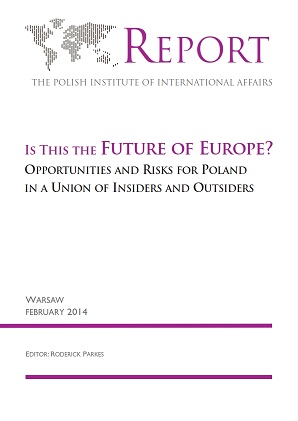Neighbourhood Policy: “Let Economics Do the Job”
Neighbourhood Policy: “Let Economics Do the Job”
Author(s): Elżbieta Kaca
Subject(s): Supranational / Global Economy, Governance, International relations/trade, Economic development, Migration Studies, EU-Accession / EU-DEvelopment, Geopolitics
Published by: PISM Polski Instytut Spraw Międzynarodowych
Keywords: neighbourhood policy; European Union; foreign policy; migration flow; EU diplomacy; integration of West Balkans;
Summary/Abstract: As a foreign policy player, the EU has the clearest priorities in its direct neighbourhood: it must shield itself from numerous threats, such as irregular migration flows, conflict and energy insecurity. However, its political leverage over the region has weakened even as a new union diplomacy has been created. The reason lies in the fact that EU policy tools do not meet reality and changing trends. The European Neighbourhood Policy was created in 2004, a time when the EU was self-assured due to the successful accession of 10 new Member States and wanted to impose upon its neighbours its political vision by using strategies replicating enlargement. It is no longer the same story. Internally, the EU integration model is being rethought and is developing into multi-speed formats from which the 2004 members find themselves rather marginalised. No further accession commitments are likely to be undertaken by the Member States in the medium term beyond those already made to the West Balkans.
- Page Range: 41-45
- Page Count: 5
- Publication Year: 2014
- Language: English
- Content File-PDF

